Xinxun Xu
Progressive Domain-Independent Feature Decomposition Network for Zero-Shot Sketch-Based Image Retrieval
Mar 22, 2020
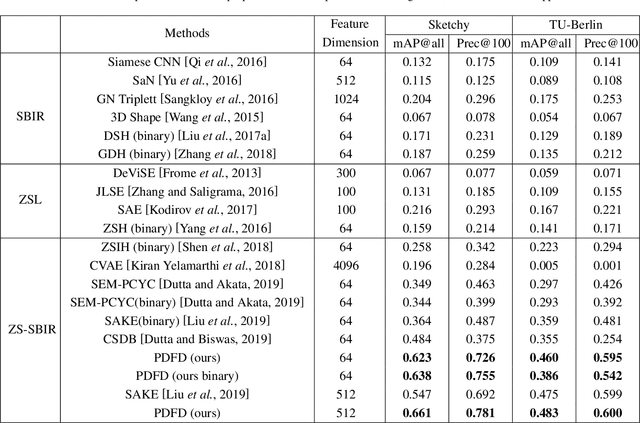
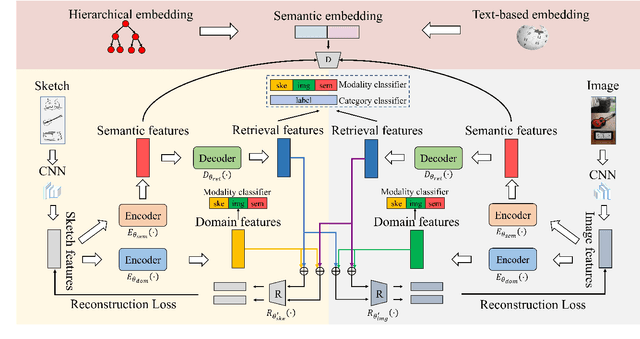

Abstract:Zero-shot sketch-based image retrieval (ZS-SBIR) is a specific cross-modal retrieval task for searching natural images given free-hand sketches under the zero-shot scenario. Most existing methods solve this problem by simultaneously projecting visual features and semantic supervision into a low-dimensional common space for efficient retrieval. However, such low-dimensional projection destroys the completeness of semantic knowledge in original semantic space, so that it is unable to transfer useful knowledge well when learning semantic from different modalities. Moreover, the domain information and semantic information are entangled in visual features, which is not conducive for cross-modal matching since it will hinder the reduction of domain gap between sketch and image. In this paper, we propose a Progressive Domain-independent Feature Decomposition (PDFD) network for ZS-SBIR. Specifically, with the supervision of original semantic knowledge, PDFD decomposes visual features into domain features and semantic ones, and then the semantic features are projected into common space as retrieval features for ZS-SBIR. The progressive projection strategy maintains strong semantic supervision. Besides, to guarantee the retrieval features to capture clean and complete semantic information, the cross-reconstruction loss is introduced to encourage that any combinations of retrieval features and domain features can reconstruct the visual features. Extensive experiments demonstrate the superiority of our PDFD over state-of-the-art competitors.
Semantic Adversarial Network for Zero-Shot Sketch-Based Image Retrieval
May 07, 2019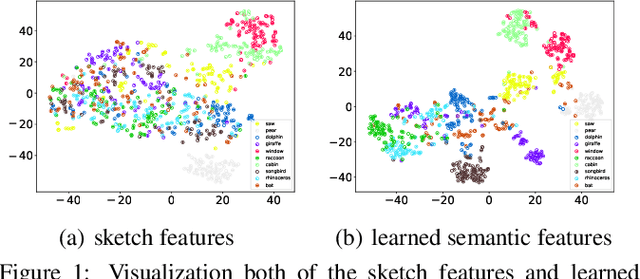
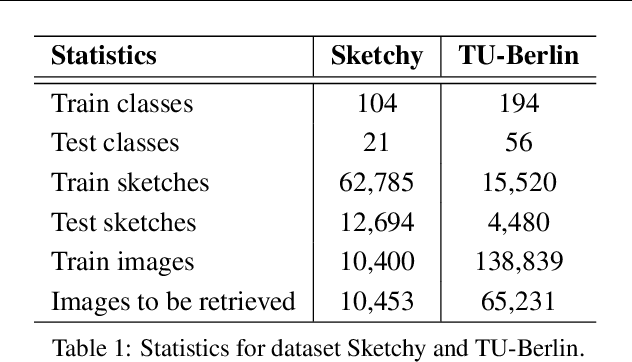
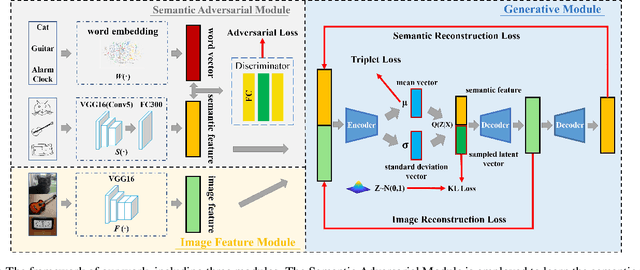
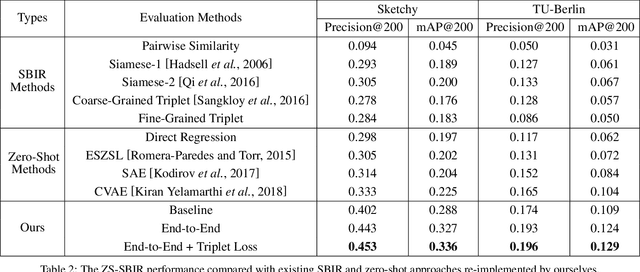
Abstract:Zero-shot sketch-based image retrieval (ZS-SBIR) is a specific cross-modal retrieval task for retrieving natural images with free-hand sketches under zero-shot scenario. Previous works mostly focus on modeling the correspondence between images and sketches or synthesizing image features with sketch features. However, both of them ignore the large intra-class variance of sketches, thus resulting in unsatisfactory retrieval performance. In this paper, we propose a novel end-to-end semantic adversarial approach for ZS-SBIR. Specifically, we devise a semantic adversarial module to maximize the consistency between learned semantic features and category-level word vectors. Moreover, to preserve the discriminability of synthesized features within each training category, a triplet loss is employed for the generative module. Additionally, the proposed model is trained in an end-to-end strategy to exploit better semantic features suitable for ZS-SBIR. Extensive experiments conducted on two large-scale popular datasets demonstrate that our proposed approach remarkably outperforms state-of-the-art approaches by more than 12\% on Sketchy dataset and about 3\% on TU-Berlin dataset in the retrieval.
 Add to Chrome
Add to Chrome Add to Firefox
Add to Firefox Add to Edge
Add to Edge